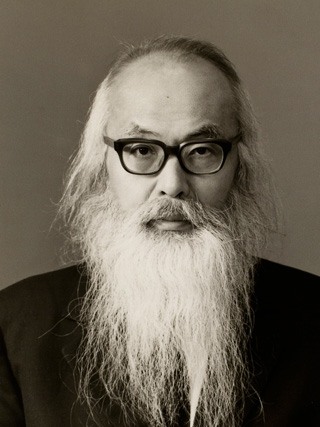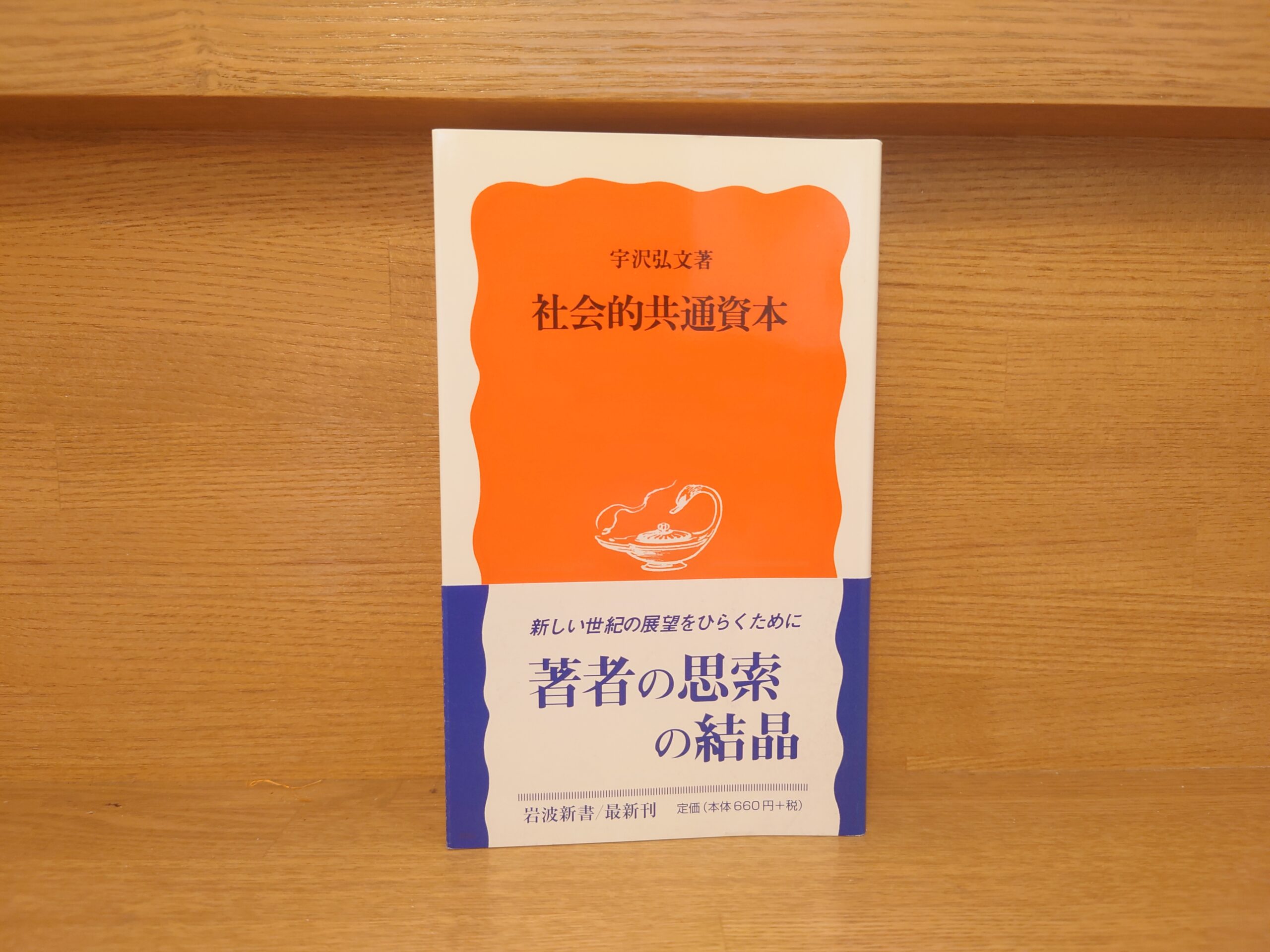Outline and Comments on Hirofumi Uzawa's "Social Common Capital" - Proposals from a leading Japanese economist who was one of the first to advocate the commons!
I would like to introduce "Social Common Capital" by Hirofumi Uzawa, published by Iwanami Shoten in 2000.
Let's take a quick look at the book.
Social common capital" is a social device that makes possible a prosperous economic life, the development of excellent culture, and the stable maintenance of a humanly attractive society. This book places the concept and role of social common capital in the history of economics, and clarifies it with specific themes such as agriculture, cities, healthcare, and education. This book is a crystallization of the author's speculation, explaining the prospects for opening up the present chaotic era.
AmazonProducts Page.

I picked up this book by Minoru Sasaki, whom I introduced earlier.The Man Who Fought Capitalism: Hirofumi Uzawa and the World of Economics.I picked up this book because Hirofumi Uzawa was so fascinating. Hirofumi Uzawa was so fascinating that I picked up a copy of his book, "Social Common Capital," which I was eager to read.
Hirofumi Uzawa discusses American-style neoliberalism, environmental issues, and inequality from the perspective of "social common capital. He is not a theoretical thinker, but a man who went to the Minamata Disease site and continued to fight against the reality of the disease.
I was struck by the way he continues to practice in the field despite being an economist.
It should not be overlooked that his experiences at a Zen temple as a young man influenced him for the rest of his life. Anyway, the scale is just too huge!
Hirofumi Uzawa's warning against the state of modern Japan is contained in this book.
Hirofumi Uzawa describes "social common capital," which is also the title of this book, in his "Hashigaki" (preface) as follows
Social common capital refers to the social apparatus that enables all people living in a country or a specific region to lead a prosperous economic life, develop a good culture, and maintain a humanly attractive society in a sustainable and stable manner.
Social common capital can be considered in three broad categories: natural environment, social infrastructure, and institutional capital. The natural environment, including air, forests, rivers, water, and soil; social infrastructure, including roads, transportation, water, sewage, electricity, and gas; and institutional capital, including education, healthcare, justice, and financial systems, are important components of social common capital. It can be said that urban and rural areas are also created from various types of social common capital.
The social and economic structure of a country or a specific region is characterized by the specific components of the common social capital, how it is managed and operated, and by what criteria it is used or its surpices are distributed. The social and economic structure of a country or a particular region can be characterized by how it is managed and operated, and by what criteria social common capital itself is used or its serpices are distributed.
In this document, we first explain the concept of social common capital and its role. It then considers how the concept of social common capital has been positioned in the history of economics. We will also discuss the social and economic roles played by the important components of social capital, such as the natural environment, rural areas, cities, education, healthcare, and finance, and consider what institutional preconditions must be met in order to successfully achieve the objectives of social capital and to make sustainable economic development possible. In addition, we would like to consider what institutional preconditions must be met in order to successfully achieve the objectives of social common capital and to enable sustainable economic development.
It would be a great pleasure for the author if this book could be of some help to Japan in overcoming the end-of-the-century confusion and stagnation in which it now finds itself, and in opening a new vision for the new century.
Iwanami Shoten, Hirofumi Uzawa, Social Common Capital, p. iii-iii
Social common capital can be considered in three broad categories: natural environment, social infrastructure, and institutional capital. The natural environment, including air, forests, rivers, water, and soil; social infrastructure, including roads, transportation, water, sewage, electricity, and gas; and institutional capital, including education, healthcare, justice, and financial systems, are important components of social common capital. It could be argued that cities and rural areas are also created from various forms of social common capital."
The term "social common capital" may seem difficult to hear out of the blue, but as a basic concept it is not as difficult as the above. In this book, these are sometimes described as the "commons" (common goods) of the people.
The word "common" is often talked about from a Marxist perspective these days, but "common" is not Marx's monopoly. In fact, it is only recently that this aspect of Marx's work has come into the spotlight.
Hirofumi Uzawa will point out the shortcomings of that excessive capitalism from within economics, not from the Marxist side.
This book was published in 2000. Now it is 2023, and I feel that the world is even worse off than the world Hirofumi Uzawa saw. What would Hirofumi Uzawa say if he were alive today? This is a big question for me to think about.
Reflect on the excesses of capitalism and rethink social common capital. This book makes it clear that this is an urgent task. It makes you think about how critical the situation is today.
This recommendation by a leading Japanese economist is so valuable.
It may be a little tough to start reading from this book suddenly, so I will start with the book by Minoru Sasaki.The Man Who Fought Capitalism: Hirofumi Uzawa and the World of Economics.We recommend that you start reading from
This is an important book to read today. Why not pick up a copy?
This is "Hirofumi Uzawa's "Social Common Capital": Proposals from Japan's Leading Economist who Pioneered the Advocacy of the Commons! The above is "Proposal by Hirofumi Uzawa, a leading Japanese economist who was an early proponent of the commons!
Next Article.
Click here to read the previous article.
Related Articles







































